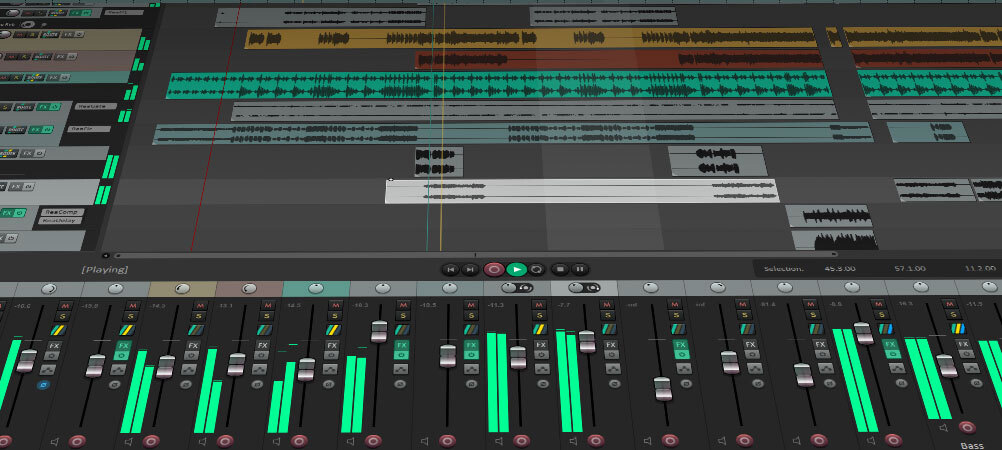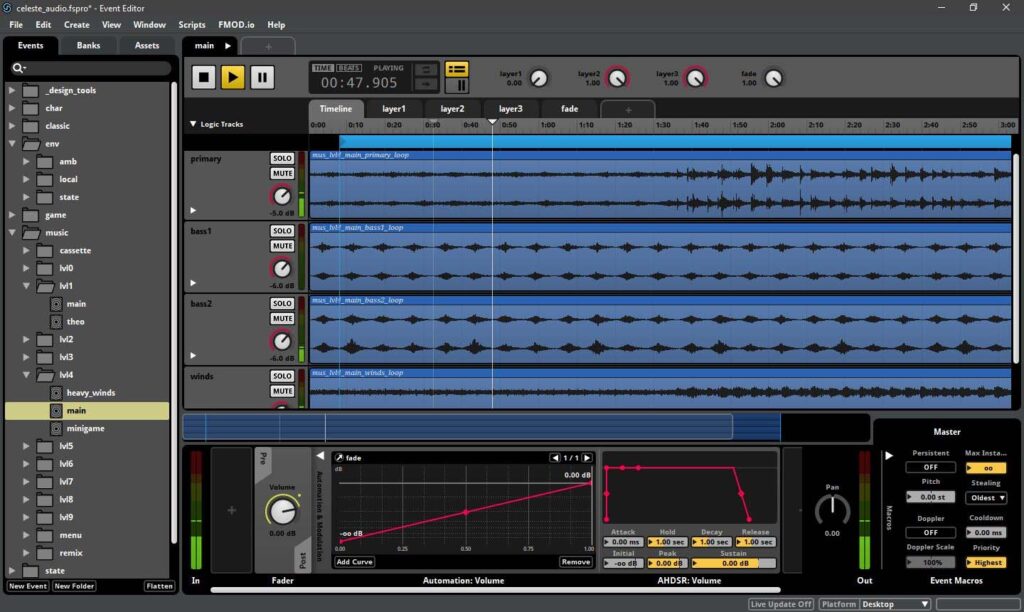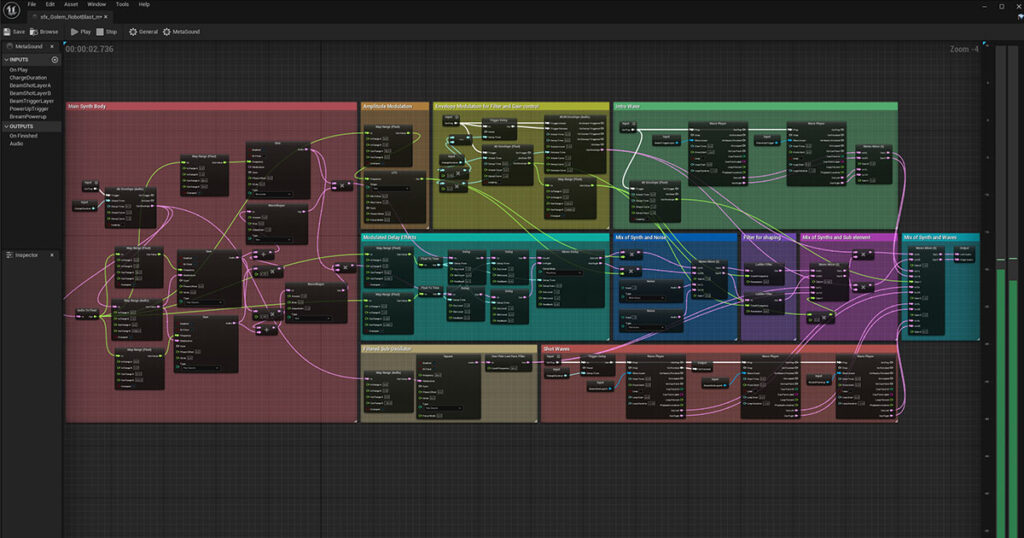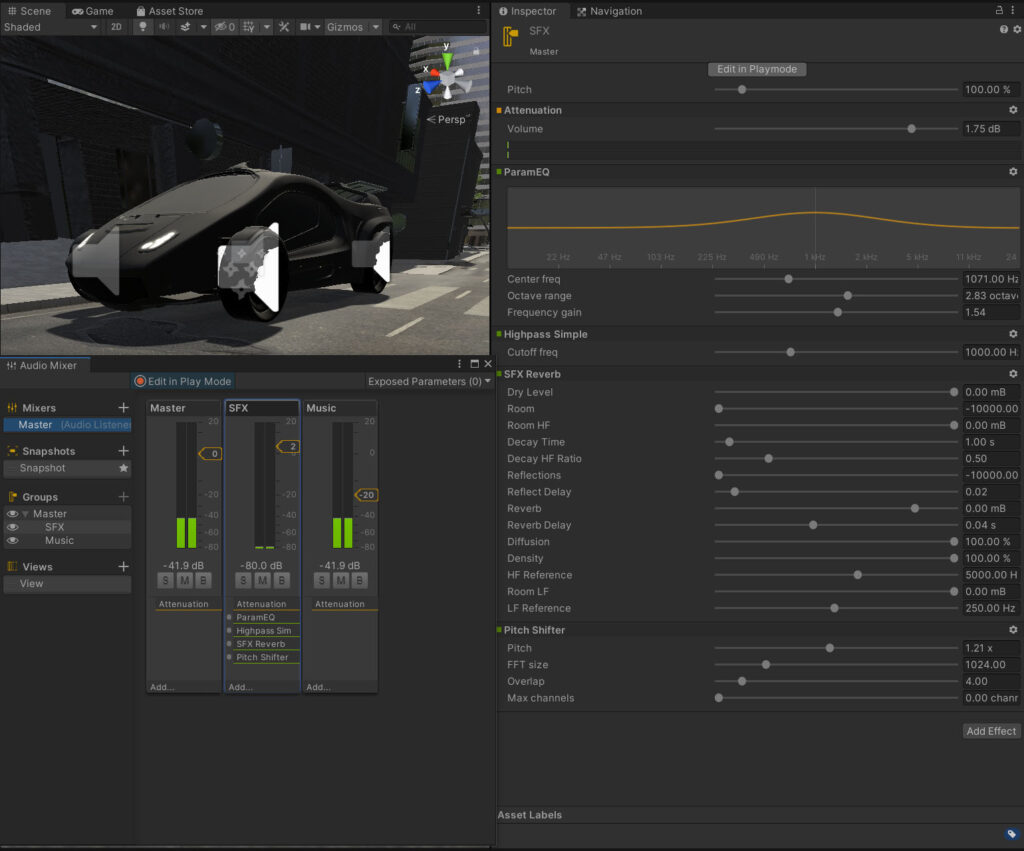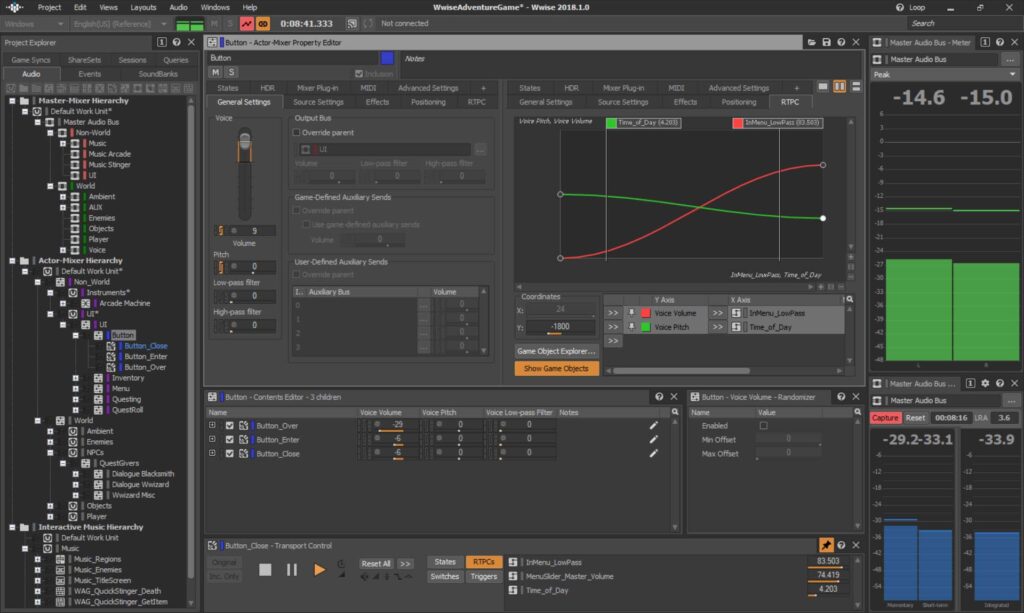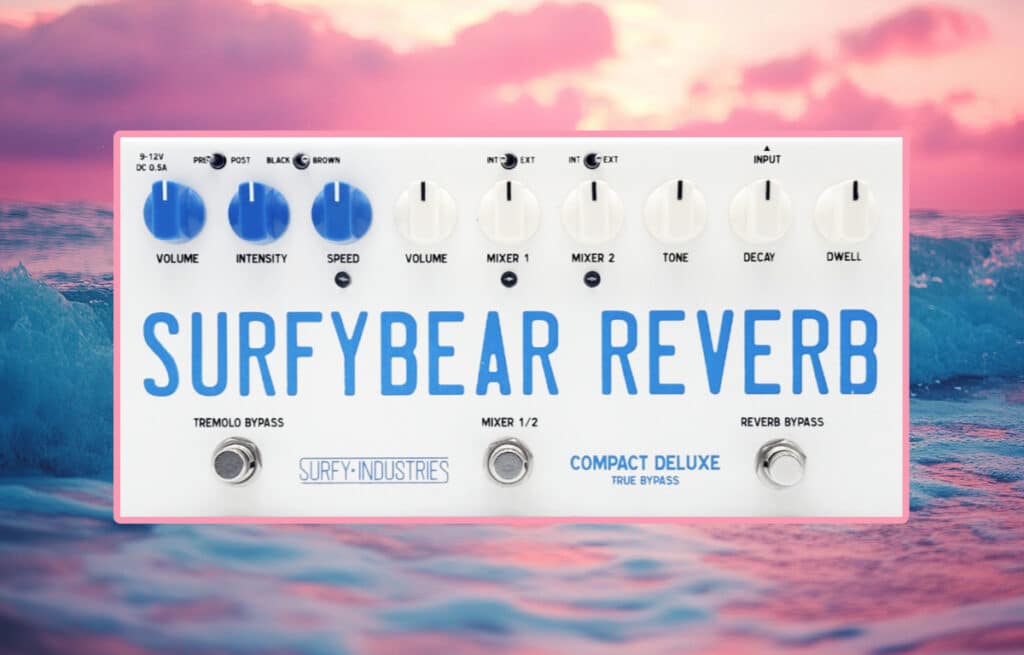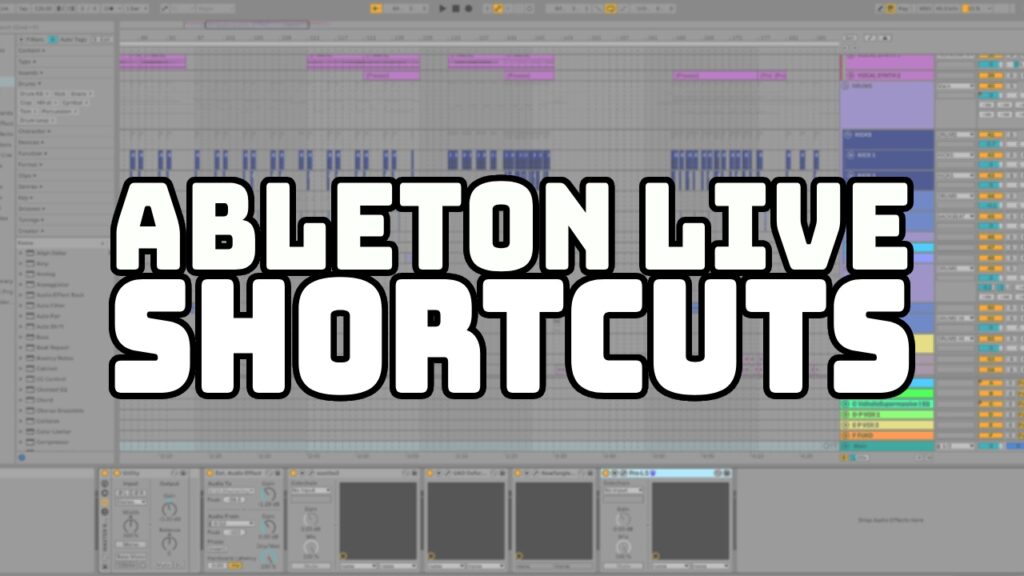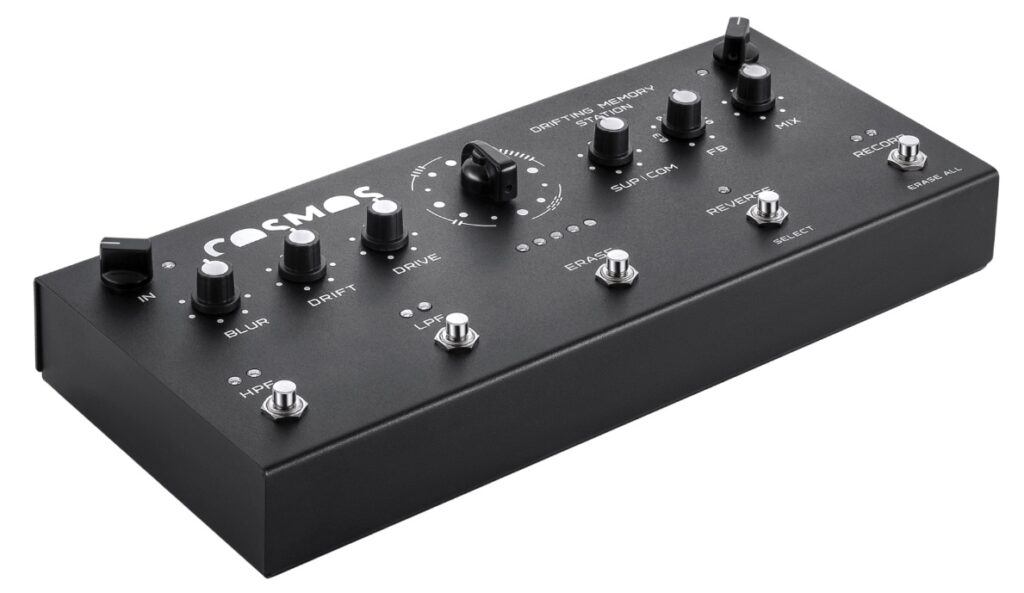This article will provide an overview of various game audio roles, career paths, and where to start. When it comes to planning your transition or journey in game audio, one important factor is finding your niche. Though it is important to try a bit of everything, finding your passion and seeing it through is crucial for success in the field of game audio.
While this article is going to focus on the roles you would expect to find in the game audio industry, it should be noted that some companies structure their sound teams differently and have differing titles for each.
OVERVIEW
You can think of roles in five general categories in terms of career progression:
- Interns
- Entry-level Positions
- Mid-level Positions
- Senior-level Positions
- Assorted roles like Leads, Directors, Managers, etc.
Specific roles described below include:
- Sound Designer
- Technical Sound Designer
- Dialogue Editor/Designer
- Music Editor/Designer
- Audio Producer
- Audio Programmer
- Composer
- Audio Quality Assurance
When you start familiarizing yourself with these roles, try to figure out which type of position aligns with your passion. Based on my experience, I would shy away from being a generalist. It can work out sometimes, but typically companies will hire someone that is very good at a specific job, so when you find your niche, fully commit to it!
SOUND DESIGNER
Ah yes, the tried and true, the sonic abstractionist of noise, the sound designer! When training yourself to be a sound designer for games, the first thing you should do is re-designs! While doing this, push yourself to try different genres of games because weapon and character design in a milsim (military simulation) like Hell Let Loose would be very different than what you would expect from a larger-than-life design approach employed in games like DOOM, Apex Legends, or Valorant for example.
The way I like to think about sound design roles is 70% creative design and 30% tech. Though you might not find yourself getting in as deep as a Technical Sound Designer, you are still expected to do basic implementation tasks, work with middleware, etc. But these percentages can change drastically depending on the company.
TECHNICAL SOUND DESIGNER
Technical Sound Designers, like myself, can be thought of as a bridge between disciplines. As a tech, you are expected to know the tools of game audio like the back of your hand. You are the bridge between programmers and sound designers, and your goal should be to both uplift the quality of the game through tech as well as to support sound designers in achieving the game’s vision.
Though you still may have creative design tasks, think of this role as 90% tech and 10% creative design. Your typical day will be working with any if not all aspects of the audio pipeline, such as adding additional functionality to pre-existing systems (character movement, breakables, physics simulations, etc.). You both create and support simultaneously and are in constant collaboration with other disciplines. To be a tech, you need to have a hunger for problem-solving, know engines/middleware at an advanced level, and have the ability to collaborate daily.
DIALOGUE EDITOR/DESIGNER
You rarely find games that don’t have dialogue to some degree nowadays. Some studios have dedicated teams to work with dialogue if the titles call for it, while in smaller contexts the role doesn’t exist at all and may be part of the sound designer’s task.
This role includes editing, batch processing, and implementation typically in conjunction with both the sound design team and the dialogue/story team. Like most roles on this list, the duties are a function of the needs of the given project and team.
You will be expected to provide editing, design voice processing chains, implement batch processing and exporting with tools like Nuendo or REAPER, ensure naming conventions are correct, and work with large infrastructures to implement dialogue into the game.
Reaper
MUSIC EDITOR/DESIGNER
Music in games can have a multitude of complexities. Player actions can influence the music, trigger a level progression with a new musical section and more. The role of an editor and designer is both cutting the tracks and stems into the individual elements that support the design desired for the music system. Music in games needs to have systems designed to be complementary to the ebb and flow of the levels and progression of the game, which could entail creating vertical elements, horizontal progressions, stingers, transitional pieces, and much more. Check out the video Adaptive Music Systems by Kejero!
Responsibilities would entail working within a DAW, editing and cutting the music as well as a deep understanding of the tools needed to make a dynamic music system for games. These could include: Wwise, FMOD, Unity, Unreal, or proprietary technology! If you understand both how music works and how games work from a technical stance, this could be the role for you!
FMOD
Unreal Engine – MetaSounds Graph Editor
Unity
Audiokinetic Wwise
AUDIO PRODUCER
Through the chaos of development and constant fires arising–in steps the producer in all their glory. They have constant communication with producers from other teams as well as making sure that their specific team has the information they need to complete their task. As an example, a portion of a game may have an event that happens where a bunch of bots and players swarm a stronghold that involves multiple stages. This requires the coordination of several teams in the production process!
The story, art, animation, VFX, programming, audio, and other teams may be involved in developing a user experience and producers are the ones to make sure everything keeps going in a forward direction using milestones, sprints, releases, and more.
As a producer, having good management skills is a must. You’ll typically see programs such as Confluence, JIRA, or Miro used to keep everything on the rails. People skills, one-on-one conversations, presentations, and soft skills are important in this role as well.
AUDIO PROGRAMMER
The role of an audio programmer can be thought of as a last line of defense in terms of support roles. They are the ones who create tools for the audio team to use in achieving the game’s vision and are in constant collaboration with both the audio department and engineering department. Though they don’t typically work with audio directly, they are expected to have an acute understanding of how audio works in order to create the tools requested for the team.
Responsibilities and expectations for an audio programmer would be having a strong understanding of how audio works for games as well as fluency in multiple languages such as C++, C#, Java, Javascript, Python, Lua, and SQL.
COMPOSER
A composer for games is the emotional driver in the audio department. Being able to create music for adaptive music systems and having a deep understanding of how they work is a must. You can expect to work with Music Editors/Designers in creating the deliverables for the game. This role is a bit elusive and can change dramatically in expectations depending on the studio, their needs, and how they are structured. It’s important to keep in mind that this is the hardest role to achieve due to the lack of jobs and job openings that occur. I’m not saying this intending to discourage aspiring game composers, but it is information that is statistically true and good to know.
Responsibilities for a composer can be difficult because a lot of times this role isn’t found in-house. You should have a deep understanding of game audio methodologies, a strong knowledge of music theory, be familiar with traditional composing and scoring techniques, and be able to conduct if called upon.
AUDIO QUALITY ASSURANCE (QA)
When developing anything in software, you will produce bugs and bad design constantly, regardless of the department you’re in. Though it’s great to find, fix, and balance, you need a practical team that knows how to benchmark, stress test, and try and break the game. Working in quality assurance will require you to understand fundamentally how the game works, how to use the debug tools, working within JIRA for task management and communication with the reporter of the feature, and more.
CONCLUSIONS
These are some of the typical roles you should expect to find in game audio but do know there are more depending on the studio! Understanding games and how it all works in and outside of audio is very important, so if you’re in school or in another field looking to learn more about game audio, breathe it all in and explore everything. Two things are essential–understanding how it all works for the sake of collaboration and committing to the sub-class of the game audio profession that best fits your interests and skill set. Feel free to reach out to me on Twitter or LinkedIn if you have more questions or just want to chat!
ABOUT THE AUTHOR
Alex Haisting is a Technical Sound Designer for games working at Team Audio. There, he works with an array of AAA clients designing and implementing audio systems into games, as well as creating sound effects. With a strong passion for acoustics, he spends a lot of his time researching new methodologies of simulating acoustics for games as well as creating his own custom tools for Unreal Engine. He attended the Savannah College of Art and Design and received his Master of Fine Arts in Sound Design. Outside of work, he enjoys working with 3D printing, working on projects around the house, and doing personal projects in Unreal Engine.
EXTRAS
Want to win a free license to Kontakt 7? Be one of the first 1000 people to FOLLOW WAVEINFORMER ON INSTAGRAM to be automatically entered to win one of three full-version Kontakt 7 licenses! Read more.
Assess your knowledge of essential audio concepts using our growing catalog of online Quizzes.
Explore more content available to Subscribers, Academic, and Pro Members on the Member Resources page.
Not a Member yet? Check the Member Benefits page for details. There are FREE, paid, and educational options.





